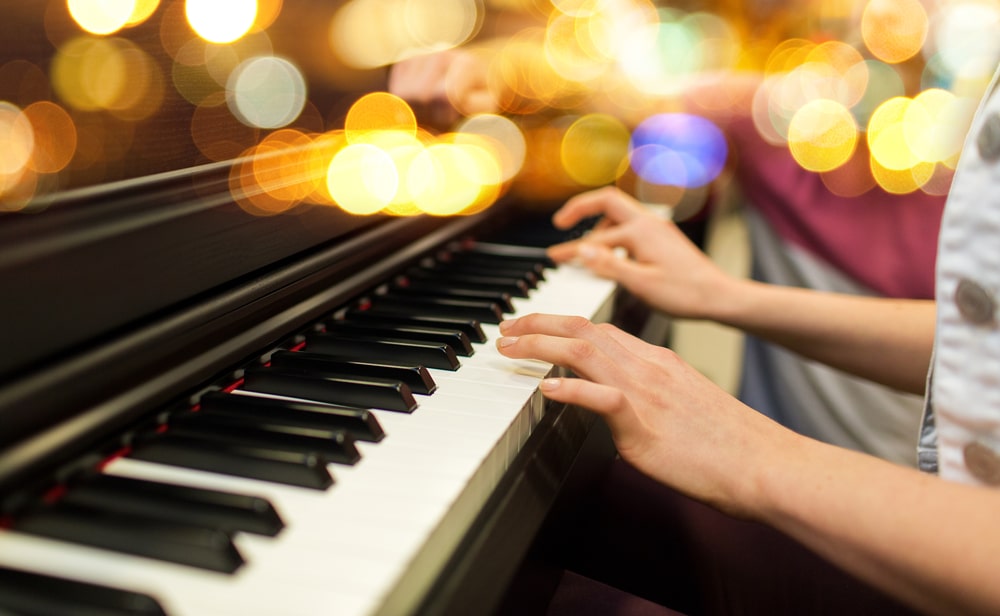In a sunlit room filled with the lingering melodies of countless hours of practice and joy, a well-loved instrument rests silently. Its gleaming ebony finish reflects the emotions of its caretaker, a bittersweet mix of nostalgia and anticipation. This instrument is more than just wood and strings; it is a vessel of memories, a silent witness to life’s milestones. The decision to sell a beloved instrument, particularly one as central to a home as a piano, is often a deeply emotional one.
This article will explore the complex emotions associated with parting with a treasured instrument. It delves into the profound connection between musicians and their instruments, examining the role these tools play in shaping our lives and identities. The journey of deciding to sell a piano, the emotional stages of letting go, and the hopeful transition of finding a new home for the instrument will be explored. Ultimately, this exploration seeks to understand and validate the emotions that arise when it’s time to say goodbye to a cherished companion.

The Piano as a Silent Witness: Stories Etched in Ivory and Ebony
Beyond its polished wood and intricate mechanics, a piano serves as a vessel of personal histories. Each key holds the echoes of countless melodies, from simple scales practiced by eager beginners to complex compositions performed with passion and precision. The instrument’s presence in a home often intertwines with the lives of its inhabitants, becoming a backdrop for life’s most significant moments.
The piano’s sound can evoke powerful sensory memories, transporting individuals back to childhood recitals, festive gatherings, or quiet moments of solace. The touch of the keys under one’s fingers, the resonant vibration of each note, and the unique scent of aged wood and polished ivory all contribute to a multi-sensory experience that becomes deeply embedded in one’s consciousness. As years pass, the instrument transforms into an archive of shared experiences, silently bearing witness to the joys, sorrows, and personal growth of those who have interacted with it.
A New Chapter, A New Tune: Finding Excitement Amidst the Sadness of Selling Your Instrument
The decision to part with a treasured instrument is often a complex and emotional one. Life’s circumstances can change unexpectedly, necessitating difficult choices. Relocation, downsizing, or financial constraints may lead to the realization that an instrument, once a central fixture in a home, can no longer be accommodated. Similarly, evolving interests and passions can shift an individual’s focus away from a once-beloved instrument, leading to the difficult decision to sell it.
This decision is rarely made lightly, as it involves a blend of conflicting emotions. A sense of loss and regret often accompanies the realization that an instrument, once a source of joy and creative expression, will no longer be a part of one’s daily life. Nostalgia, for the memories and experiences tied to the instrument, can be overwhelming. Yet, amidst this sadness, there may also be a glimmer of hope and excitement for the future, a sense of possibility as one chapter closes and another begins. The decision to sell a cherished instrument can be likened to a bittersweet melody, a harmonious blend of sadness and optimism.
For some, a sense of guilt may also arise, a feeling of abandoning a loyal companion that has been a constant source of comfort and creative outlet. However, it’s important to remember that an instrument’s value lies not only in its physical presence but also in the memories and experiences it has facilitated. The decision to sell an instrument doesn’t erase these memories; rather, it opens up the possibility for the instrument to spark new joys and experiences for another individual, thus continuing its legacy of musical expression.
Those considering where to sell pianos will find a range of options, from online marketplaces to local music stores and auction houses. Each option has its advantages and considerations, but ultimately, the goal is to find a new home where the instrument will be appreciated and continue to make music.

Sentimental Value vs. Market Realities: The Pricing Dilemma When Selling Your Instrument
The process of parting with a treasured instrument is often a gradual one, marked by a symphony of emotions. The initial decision may be followed by a period of reluctance and hesitation, as one grapple with the reality of the impending separation. This can manifest as procrastination, as one delays the inevitable tasks associated with preparing the instrument for sale.
However, as the process moves forward, a sense of acceptance often begins to emerge. The meticulous cleaning, tuning, and photographing of the instrument can become a ritual of honoring its legacy. Interacting with potential buyers can be a surprisingly emotional experience, as strangers evaluate an object imbued with personal significance. The negotiation of a price, too, can be fraught with tension, as one tries to reconcile sentimental value with market realities.
Finally, the moment of parting arrives, a bittersweet farewell to a cherished companion. This can be a time of profound sadness and reflection, as one acknowledges the end of an era. Yet, it can also be a moment of closure and release, allowing for the acknowledgment of new beginnings. The instrument, having served its purpose in one life, is now ready to embark on a new journey, bringing music and joy to another.
More Than a Sale: Finding the Perfect Match for Your Beloved Instrument
Finding the right new home for a cherished instrument is an essential aspect of the selling process. While financial considerations may play a role, the desire for the instrument to continue its musical journey is often paramount. The hope that it will inspire a new generation of musicians, fill a different space with its melodies, or simply bring joy to a new owner can be a powerful motivator.
There are various avenues to explore when seeking a new home for an instrument. Online marketplaces offer a wide reach, connecting sellers with potential buyers from all walks of life. Local music stores and consignment shops provide a more personal touch, often catering to a community of musicians who understand the value of a well-maintained instrument. Auction houses offer a unique platform for rare or antique instruments, attracting collectors and enthusiasts.
Those looking to sell a piano fast and ask themselves how to sell a piano fast may find that online marketplaces offer the quickest turnaround, with a vast audience of potential buyers. Detailed descriptions, high-quality photographs, and a competitive price can all contribute to attracting interest and expediting the sale. Ultimately, the ideal outcome is to find a new owner who will cherish and nurture the instrument, ensuring that its musical legacy continues to flourish.
Reflections on Parting with a Piano
The journey of parting with a treasured instrument like Yamaha Clavinova piano for sale is a testament to the deep connection between humans and the objects that shape their lives. From the initial pang of loss to the gradual acceptance and hopeful anticipation of a new beginning, the process is an emotional odyssey. While tinged with sadness, it is also a journey marked by growth, reflection, and the recognition of the enduring power of music.



